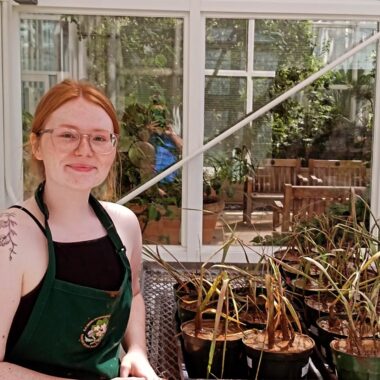
Salt marshes are known to harbor arbuscular mycorrhizal fungi (AMF), which are obligate biotrophs that contribute to plant health by enhancing nutrient assimilation, water uptake, and reducing exposure to soil-borne pathogens and phytotoxic heavy metals. AMF can be propagated and applied to future salt marsh restoration projects as a nature-based strategy.
Salt marshes are coastal wetlands that provide many ecosystem services such as: flood mitigation, carbon sequestration, water purification and habitat for many organisms.
Objective: This project investigates the propagation, isolation, and identification of AMF in association with keystone salt marsh grass species: Sporobolus alterniflorus(Smooth Cordgrass), Sporobolus michauxianus(Prairie Cordgrass), and Sporobolus pumilus (Salt Marsh Hay).
Trap cultures are used as an AMF propagation technique. This involves growing plants in sediment containing AMF spores to allow for an association to form and AMF to propagate. This study will determine if these grass species serve as suitable host plants for AMF propagation which will assist in the development of coastal bioinoculants useful for salt marsh restoration projects.
Sarah Doyle
Sarah Doyle is entering her fourth year as an honours student in Biology. Sarah has been a dedicated volunteer in the K.C. Irving Centre through her time at Acadia and is passionate about environmental research.


 Acadia University
Acadia University